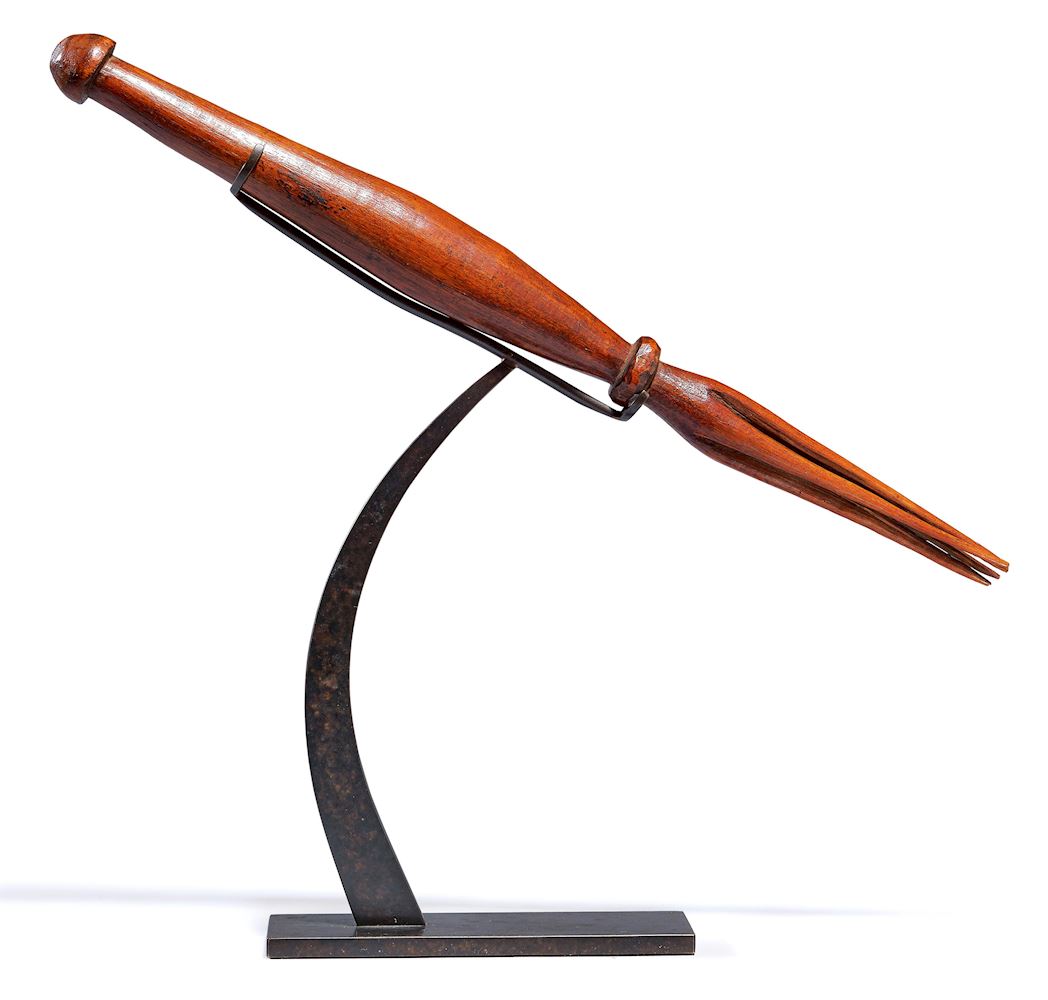
Lot 843* - A207 Out of This World - Monday, 04. December 2023, 04.00 PM
ICULANIBOKOLA–CANNIBAL FORK
Fiji Islands
18th–19th century
Wood
28.5 × 2.5 cm (not including stand)
18th–19th century
Wood
28.5 × 2.5 cm (not including stand)
Fijian cannibal forks (Iculanibokola) were used by tribal chiefs, shamans and priests during rituals, as they were considered too holy to touch food directly with their hands. One of the most important ceremonies in which a chieftain participated was the devouring of an enemy defeated in battle. Combining the significance of the event and the inability to use their hands, the chiefs needed a way to participate – hence the development of the cannibal fork. Cannibal forks eventually became a way to show power and influence. The fancier and more elaborate the fork, the higher the status of its owner. These important forks were considered true relics and were kept in ‘Bure kalou’, the house of the priests, also called the house of spirits.
The influence of Christianity ended cannibalism in Fiji around 1860. Although the values and customs of what is now a strictly Christian society have changed considerably since then, efforts are being made to address this chapter of Fiji's history in an appropriate historical context. In the West, the fascination with the practice continues to this day.
This exquisite cannibal fork was carved from wood and is a true relic of a bygone culture. It was made in the 18th/19th century and is mounted on an elegant metal stand.
The influence of Christianity ended cannibalism in Fiji around 1860. Although the values and customs of what is now a strictly Christian society have changed considerably since then, efforts are being made to address this chapter of Fiji's history in an appropriate historical context. In the West, the fascination with the practice continues to this day.
This exquisite cannibal fork was carved from wood and is a true relic of a bygone culture. It was made in the 18th/19th century and is mounted on an elegant metal stand.
CHF 3 000 / 5 000 | (€ 3 090 / 5 150)
Sold for CHF 3 500 (including buyer’s premium)
All information is subject to change.

